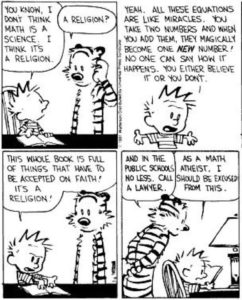I have for five months lived in the city of West Lafayette, an alternative municipality to the city of Lafayette across the river. Back in 1871 the people living here tried to convince the city of Lafayette to let them join so they could get access to the city services. The people in Lafayette decided they didn’t want to pay for all that infrastructure and voted to keep them out. Ostracized from the main town the outlying neighborhoods (which happened to include a new land grant university named after John Purdue) created their own city, and thus West Lafayette was born.
The city of Lafayette was designed and named some 192 years ago in May 1825 to honor the visit of General Marie-Joseph Paul Yves Roch Gilbert du Motier, Marquis de Lafayette who, on May 11th 1825 spent one day visiting Indiana by crossing the river from Louisville, KY to visit Jeffersonville as part of his reunion tour of the United States in which he visited every then existing state. The visit of Lafayette was so enthusiastically received that he extended his trip 16 months to travel 6000 miles through the country he bled and shed blood to create. When he landed in New York the country was gripped in a brutal and divisive presidential election and yet, in a city of 150,000 people, 50,000 of them lined the streets to glimpse Lafayette as he returned to America.
Lafayette was a strange footnote in the strange revolution that created the United States. He was born and orphaned to wealth and married young. At age 19 he had a wife, daughter, and was expecting another child. He lived with his also wealthy in-laws and held a post in the military as was the family tradition going back to the crusades. His father had been killed young leaving Lafayette to be raised without a father, and soon without his mother as she died a few years later. This 19-year-old deliberately disobeyed an order from his military superiors to stay in France, bought a ship with his own money (called Victory), and left his family a note to tell them he was going to America to fight for the freedom of a nation he had never visited.
He was appointed as a general when he got to Washington, mostly out of respect for his rank in the French military and his offer to serve without pay of any kind. He was not given a command at first but soon proved himself a solid soldier in the face of gunfire. He organized a retreat in the battle of the Brandywine where he saved the army from disaster (and was shot in the leg). He suffered through Valley forge, he became like an adopted son of the childless George Washington. He led one of the regiments in the final battle of Yorktown. And, perhaps most importantly, he was instrumental in convincing King Louis XVI to aid the rebellion. The same King Louis that a few years later would face another democratic revolution so intense that he ran to his palace in Versailles to escape only to be followed by a mob of women starving for lack of bread. On that day, his life, and that of Queen Marie, was only spared because some rich man named Lafayette placated the crowd by very publicly bowing and kissing the hand of the queen. (They were still carted off to jail and were executed later, oops.)
I’ve been weaving through this web of revolutionary war history in the strange jilting fashion of someone looking for a clever audiobook to listen to on long drives. I’ve heard of the illegitimate Hamilton born in the Caribbean, escaping hurricanes, orphaned, and sent to the mainland by a bunch of local merchants to gain an education simply because they thought he could be something great. The Hamilton that led another regiment in that same battle of Yorktown, kept Washington’s notes in order, and created the financial system that not only allows us to have the $19,000,000,000,000 debt we do today but also made us the world’s superpower. He who wrote so many federalist papers and quite possibly tipped the scales for the ratification of the Constitution and certainly did for the election of Thomas Jefferson (who he did not get along with) over Aaron Burr. An action that ultimately resulted in an early tragic grave.
And of course, who could ignore the war struggles of Washington trying to run an army with fake money against a force many of his people fondly admired and which controlled one of the largest empires ever established. The Washington that lost battle after battle and organized retreat after retreat and came so close to losing the revolution time and time again. Like that moment in New York when he had his army trapped on an island with the larger British force and the British navy moving to cut off the river. And then the wind died. And the ships were left slack in the harbor. A bunch of row boats ferried the army across through the night. They were not fast enough and when the sun rose men were still trapped on long island. But a fog showed up. Over their part of the river, and the British held off until the army escape through the fog.
This is the Washington whose constant desire was not for power or glory or the kingdom offered to his very popular hands, but for hearth and home. All he ever wanted was to go home to Mount Vernon and ride his horse. And when the war was won that is exactly what he did. Until we called him back to be the president for 8 years. Then again he longingly looked to his home and willingly gave up the power that was eagerly given him. Of this action his foe across the sea King George proclaimed “If he does that, he will be the greatest man in the world”.
You know what? There is something special about the United States. Yes, we seem on the verge of ripping each other to pieces some times and our problems seem to grow more desperate each year. There was hypocrisy in the actions of Hamilton, Lafayette and even Washington. They weren’t perfect. And that makes their great American experiment all the more exceptional. Its exceptional because of how it has worked. Because for 241 years we have survived in this harebrained scheme of distributing power with the people. We survive because we keep trying. We don’t sit around on our besieged island and wait for the British army to surrender, we find boats, run away, and ambush them later on Christmas. We find ways to compromise, to talk to each other, to steal away on ships to fight wars in other countries in the name of freedom. (okay, sometimes that’s not the brightest idea). We aren’t perfect. We don’t have some special mandate to rule the world and conquer everything. There is no guarantee that we will do everything right. But we are exceptional and I think that comes with some responsibility.
Today, May 20th, 1834, General Lafayette died. He was the last general from the revolutionary war to do so. Give him a few thoughts next time you read a news article, or better yet, skip the news and just give him a few thoughts. What are you doing to enrich the American experience today? To make good on the promises of liberty that Lafayette and his friends made so long ago? It’s not a simple answer. It may even be messy. Those before us thought it was worth marching barefoot through snow, spending 6 years away from home, and/or getting shot up a bit for this country. What are we doing with their sacrifices now? What are we doing with the country they left for us? What are we doing with our home?





Recent Comments